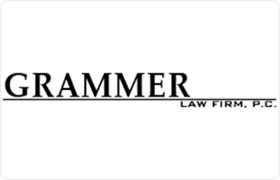Galivants Ferry White Collar Crime Lawyer, South Carolina
Sponsored Law Firm
-
 x
x

Click For More Info:
-
Grammer Law Firm, P.C.
1700 Oak St Conway, SC 29526» view mapCriminal Proudly Serving Horry County
You need an attorney with criminal defense knowledge who will vigorously protect your rights and interests.
800-957-8401
Not enough matches for Galivants Ferry White Collar Crime lawyer.
Below are all Galivants Ferry Criminal lawyers.
William H. Monckton
✓ VERIFIEDCriminal, Accident & Injury
WILLIAM H. MONCKTON, VI I graduated from the University of South Carolina School of Law in 1992. After graduation, I served as a judicial law clerk fo... (more)
Daniel Alan Hunnicutt
Workers' Compensation, Criminal, Personal Injury, Accident & Injury
Status: In Good Standing
FREE CONSULTATION
CONTACTL. Morgan Martin
Criminal, Wrongful Death, Personal Injury, Car Accident, Accident & Injury
Status: In Good Standing
Karen A. Sauls
Juvenile Law, Domestic Violence & Neglect, Firearms, DUI-DWI, White Collar Crime
Status: In Good Standing
Bradley Coy Richardson
Traffic, Lawsuit, Wrongful Termination, Criminal, Car Accident
Status: In Good Standing Licensed: 24 Years
Michael Joseph O'Sullivan
Power of Attorney, State and Local, Criminal, Consumer Protection, Defamation & Slander
Status: In Good Standing Licensed: 19 Years
Ralph James Wilson
Accident & Injury, Criminal, Employment, Lawsuit & Dispute
Status: In Good Standing
J. Stanton Cross
Motor Vehicle, Criminal, Car Accident, Medical Malpractice
Status: Inactive Licensed: 57 Years
 William Grammer Myrtle Beach, SC
William Grammer Myrtle Beach, SC AboutGrammer Law Firm, P.C.
AboutGrammer Law Firm, P.C. Practice AreasExpertise
Practice AreasExpertise

